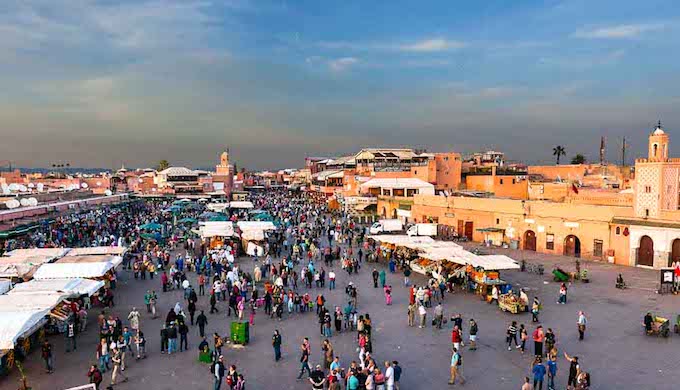Negotiators have started discussions on a declaration called the Marrakech Action Proclamation for Climate and Sustainable Development amid the shadow of climate change denier Donald Trump winning the US presidential election

Marrakech in Morocco is hosting the 2016 Climate Summit.
Delegates from 195 governments gathered for the November 7-18 UN climate summit in Marrakech, Morocco, breathed a sigh of relief as they got back to their bickering over words instead of worrying about what US President-Elect Donald Trump will do next.
The latest dispute is over a seemingly innocuous political declaration called the Marrakech Action Proclamation for Climate and Sustainable Development. Host country Morocco had planned to issue the proclamation on November 15, as ministers from various countries arrived for what is called the high level segment of the summit.
The draft proclamation was a generalised statement on the need to combat climate change, with a list of the major ways to do so. But it did not make a specific reference to the goal enshrined in the Paris Agreement to keep global temperature rise within two degrees Celsius and to strive to keep it within 1.5 degrees since pre-industrial times. Representatives from island countries were miffed about this, according to various delegates. These countries are at maximum risk as the sea level rises due to climate change, and have pushed the hardest for a 1.5-degree ceiling.
Contentious point
Another contentious point was the reported demand from some developed countries that a reference should be made to a recent British and Australian report that says rich nations have already mobilised over USD 64 billion as climate finance to poor nations, which has been contested hotly by developing countries.
As negotiations on this and other issues continued, the Trump shadow refused to lift. UN Secretary General Ban ki Moon was asked about it as he strove to push governments towards stronger climate action for one last time before his retirement.
Responding to the question asked at a press conference, Ban said, “I hope president-elect Trump will hear and understand the seriousness and urgency of addressing climate change.” During his campaign, Trump had threatened to withdraw the US from the Paris Agreement. Ban said he had spoken to Trump since the US election, and “my sense is that as a very successful businessman he understands market forces.” The UN chief had earlier spoken in detail of the way businesses were moving to combat climate change.
Big success
Amid all the bickering and the worry, delegates did manage to score a big success. The Warsaw International Mechanism to deal with loss and damage already occurring due to climate change will now be continued, and has been empowered to examine a contentious issue. This is displacement of people due to climate change effects – including droughts, floods and storms. In the teeth of opposition from rich nations, developing countries managed to push through their demand that insurance schemes will not be enough to deal with loss and damage, especially for disasters such as droughts and sea level rise that occur relatively slowly.
Poor nations are demanding money for loss and damage over and above the USD 100 billion already pledged by rich nations for mitigation of greenhouse gas emissions and adaptation to climate change impacts. That demand has not been conceded, but at least it is still on the table for negotiations over the next few years.
Over the years, climate summits have been bedevilled by the practice that one veteran negotiator describes as “nothing is agreed till everything is agreed”. Due to this, agreements on forestry and technology transfer issues have fallen by the wayside due to disagreements over other issues in previous summits. Since there is little to negotiate in this summit, the agreement over the loss and damage issue may survive.
